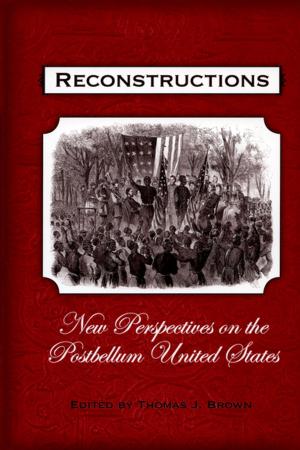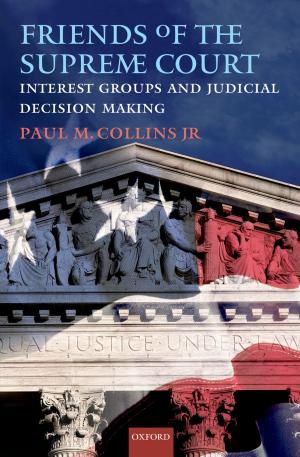Lecturing the Atlantic
Speech, Print, and an Anglo-American Commons 1830-1870
Fiction & Literature, Literary Theory & Criticism| Author: | Tom F. Wright | ISBN: | 9780190661953 |
| Publisher: | Oxford University Press | Publication: | April 6, 2017 |
| Imprint: | Oxford University Press | Language: | English |
| Author: | Tom F. Wright |
| ISBN: | 9780190661953 |
| Publisher: | Oxford University Press |
| Publication: | April 6, 2017 |
| Imprint: | Oxford University Press |
| Language: | English |
In the early nineteenth century, the public lecture emerged as one of the Anglo-American world's most important cultural forms. On both sides of the Atlantic, audiences and performers transformed a cultural practice with origins in the medieval cloister into an unexpected flashpoint medium of public life. In the United States, as part of the "lyceum movement," lecturing became crucial to literary and political life, multiple social reform movements, and the rise of public intellectualism, offering speakers from across the cultural spectrum a platform from which to promote their ideas and explain contemporary life. Lecturing the Atlantic argues for a new interpretation of this neglected institution. It reorients our understanding of the lyceum by seeing it as an international and cross-media phenomenon patterned by cultural investment in an "Anglo-American commons." Tom F. Wright shows how some of the mid-century North Atlantic world's most enduring cultural figures, such as Frederick Douglass, William Makepeace Thackeray, and Ralph Waldo Emerson, as well as fascinating marginal voices such as Lola Montez and John B. Gough, used lecture hall discussions of a transatlantic imaginary to offer powerful commentaries on slavery, progress, comedy, order, tradition, and reform. Crucially, this world was a matter as much of print as performance, since as the book reveals, a remarkable culture of newspaper commentary allowed oratory to resonate far beyond the realm of the lecture hall. Through a series of inventive readings of Anglo-American relations as understood through performance and print re-mediation, Wright connects the transatlantic turn in cultural studies to important recent debates in media theory and public sphere scholarship. Lecturing the Atlantic speaks to those interested in the literature and history of Victorian Britain and the early US, to students of performance, communication and rhetoric, and all those seeking a deeper understanding of nineteenth-century public culture.
In the early nineteenth century, the public lecture emerged as one of the Anglo-American world's most important cultural forms. On both sides of the Atlantic, audiences and performers transformed a cultural practice with origins in the medieval cloister into an unexpected flashpoint medium of public life. In the United States, as part of the "lyceum movement," lecturing became crucial to literary and political life, multiple social reform movements, and the rise of public intellectualism, offering speakers from across the cultural spectrum a platform from which to promote their ideas and explain contemporary life. Lecturing the Atlantic argues for a new interpretation of this neglected institution. It reorients our understanding of the lyceum by seeing it as an international and cross-media phenomenon patterned by cultural investment in an "Anglo-American commons." Tom F. Wright shows how some of the mid-century North Atlantic world's most enduring cultural figures, such as Frederick Douglass, William Makepeace Thackeray, and Ralph Waldo Emerson, as well as fascinating marginal voices such as Lola Montez and John B. Gough, used lecture hall discussions of a transatlantic imaginary to offer powerful commentaries on slavery, progress, comedy, order, tradition, and reform. Crucially, this world was a matter as much of print as performance, since as the book reveals, a remarkable culture of newspaper commentary allowed oratory to resonate far beyond the realm of the lecture hall. Through a series of inventive readings of Anglo-American relations as understood through performance and print re-mediation, Wright connects the transatlantic turn in cultural studies to important recent debates in media theory and public sphere scholarship. Lecturing the Atlantic speaks to those interested in the literature and history of Victorian Britain and the early US, to students of performance, communication and rhetoric, and all those seeking a deeper understanding of nineteenth-century public culture.















